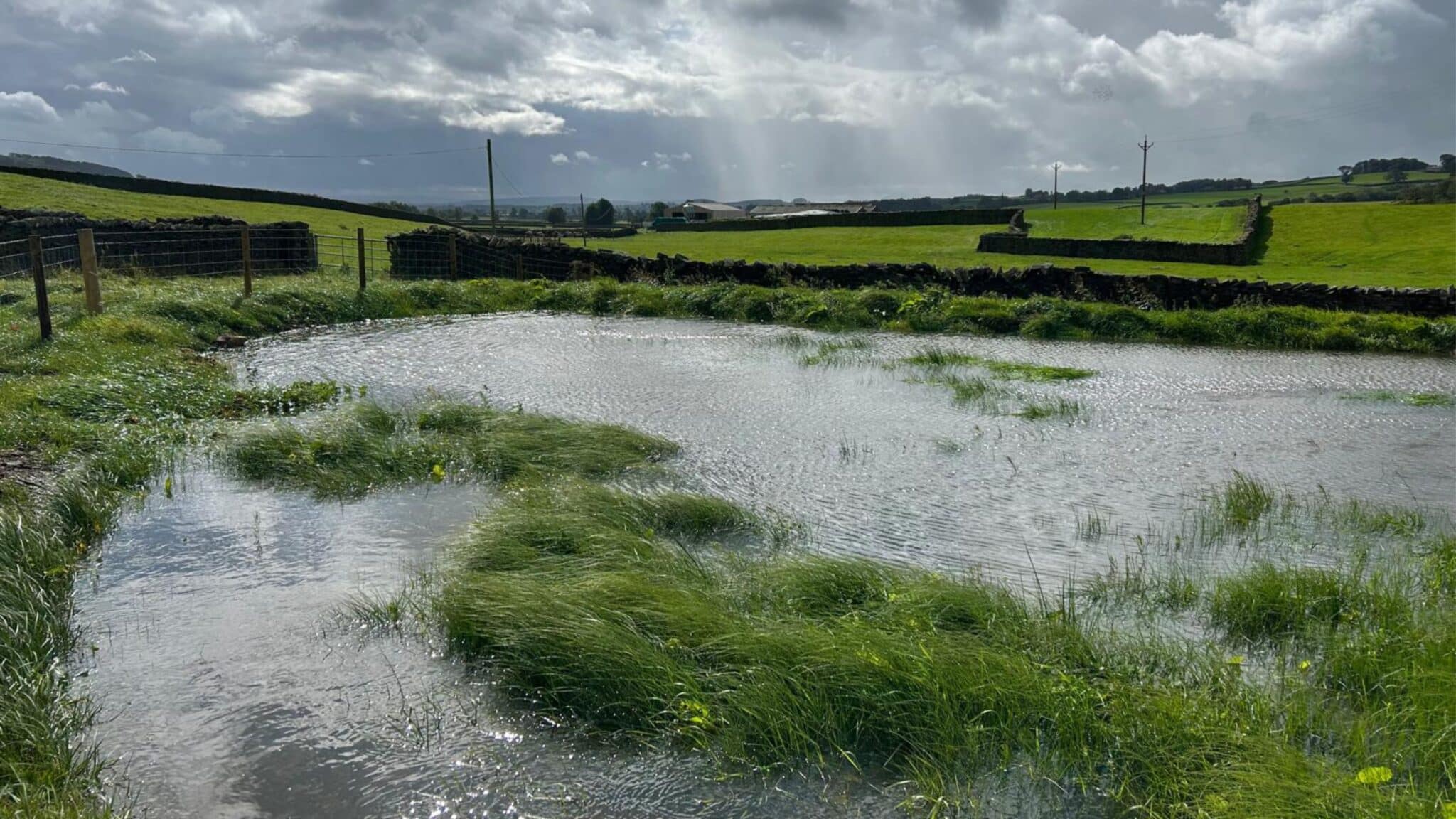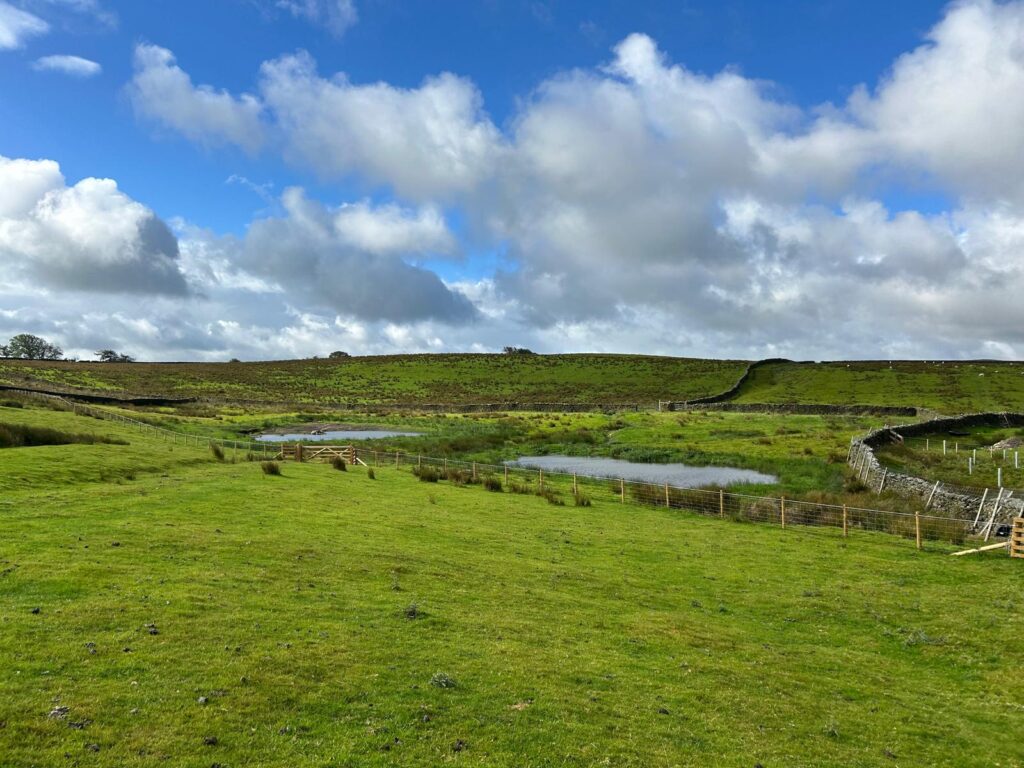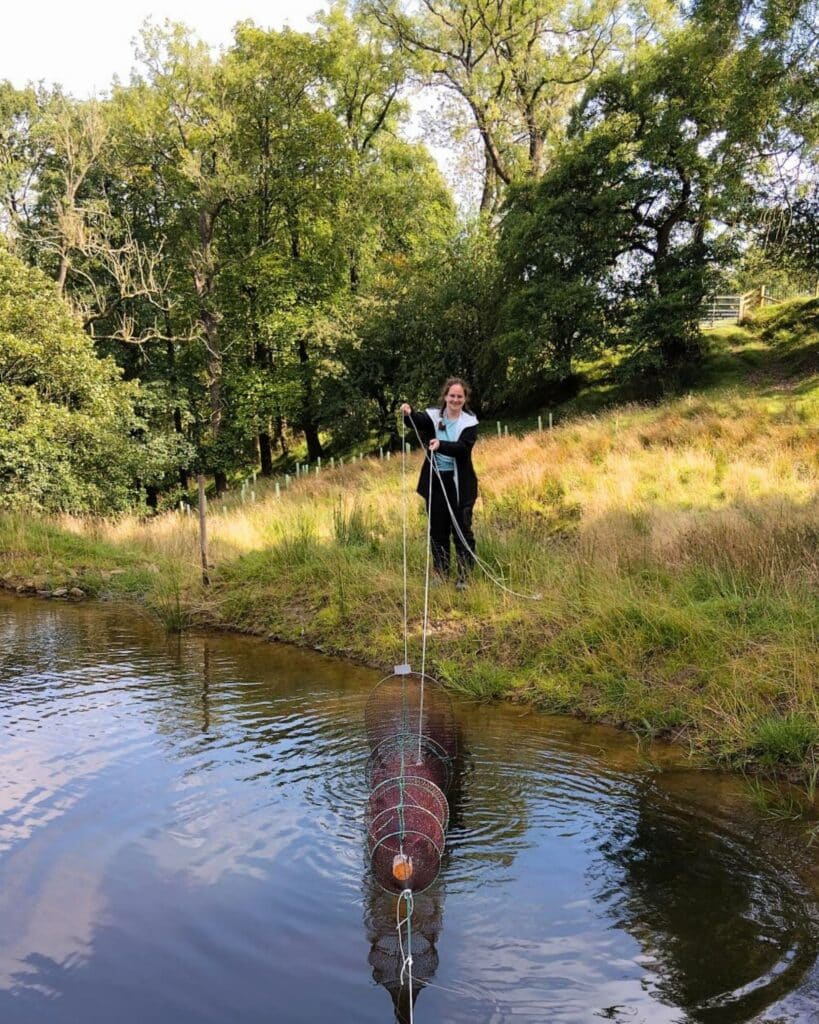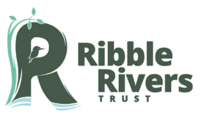
Upper Storth Gill Beck De-culvert and Wetlands
We’re excited to share the successful completion our Upper Storth Gill Beck de-culvert and wetlands; a project that combines habitat creation with flood management. This innovative scheme features three ponds and a small section of de-culverting, designed to boost biodiversity and improve water flow across the local landscape.
What have we achieved at Upper Storth Gill Beck?
The new wetland comprises of three carefully designed ponds providing essential breeding and feeding grounds for amphibians, insects, various bird species and even some species of mammal. Not only will this help to boost local biodiversity, but it also creates a more resilient and thriving ecosystem.
In addition to habitat creation, the project has increased water storage capacity and slowed the flow of runoff. Now, the wetland area will play a vital role in natural flood management, reducing the risk and severity of flooding during heavy rainfall. Conversely, during periods of dry weather the ponds serve as refuges, by retaining water the ponds will be able to support a diverse range of wildlife throughout the year.
The wetland also acts as a natural water filter, trapping sediments and pollutants carried by surface runoff, which improves water quality downstream.

In addition to the wetland area, we’ve worked with the landowner to remove a small section of a culvert, a process known as daylighting, opening the waterway to sunlight. By daylighting the watercourse, aquatic vegetation growth and wildlife is encouraged within the watercourse. It also helps to reduce the risk of flooding, by reducing the risk of unseen blockages and increasing the capacity of the watercourse.
Monitoring the project’s success!
To assess the success and ecological impact of these interventions, ongoing monitoring is being conducted. This includes regular pond netting to survey aquatic species, habitat surveys to track vegetation and habitat changes, water quality testing to measure nutrient levels such as ammonia and phosphates, and invertebrate kick sampling to monitor aquatic insect populations.
These activities will help us understand how the habitats are developing, identify areas for improvement, and demonstrate the positive outcomes of the project over time. We’re eager to monitor how this wetland develops over time and to see the positive impact it has on local wildlife and flood management.

Part of the Ribble Revival: Room for Rivers Programme
Funding for this project has come from the Species Survival Fund. This £25 million initiative aims to restore over 3,300 hectares of habitat across the country. The National Lottery Heritage Fund administers the fund on behalf of DEFRA, and Ribble Rivers Trust has received £1.65 million to support our work. Fellow wildlife charities, farmers, and community groups nationwide have also benefitted the fund. Together, we’re helping to accelerate nature recovery and protect vital species.

Rivers are at the heart of our local landscapes. Whether you’re casting a line, exploring a riverside trail, or simply basking in the beauty of nature, you can help protect these special places now, and for generations to come.
By becoming a Ribble Rivers Trust supporter for just £3 a month, you’ll be funding real, on-the-ground action.
Ready to make a difference? Learn more here: ribbletrust.org.uk/become-a-supporter

